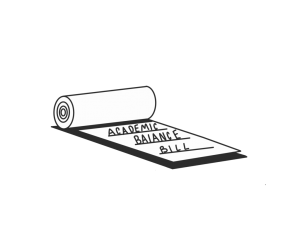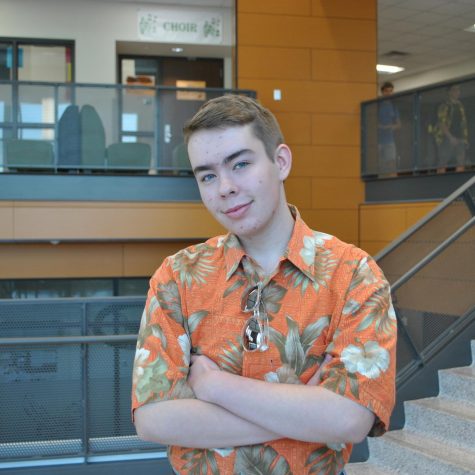The Bill Sets a Dangerous Precedent
May 5, 2018
The past year at Edina High School has faced controversy after controversy as school administration and teaching staff have been placed under continuous fire for accusations of attempted indoctrination and bullying. S.F. 2487, or the Academic Balance Bill, is only an extension of this rhetoric, aiming to bar teachers from expressing political opinions and prohibit the introduction of “controversial matters” in the classroom when they are not needed. While this policy is intended to improve the quality of education in Minnesota, the implementation of this bill into school districts would negatively affect the everyday lives of students and create an environment of fear for Minnesota educators.
Vague language, especially pertaining to the amount of power an administration is given over curriculum, can be a dangerous variable. In this case, the lack of a definition for “controversial matters” in this case is especially troubling. Without any clear-cut boundaries on what can or cannot be included in a class curriculum, the school board is handed a disproportionate amount of power over what is deemed appropriate for a classroom setting. This concern was brought to the table when Dave Edwards, the father of a transgender girl in elementary school, spoke at the hearing of the bill on March 8. “[My daughter] is still transgender during math, at recess, and in the lunchroom,” Edwards said. “There are not two sides to treating her equitably. If teachers can’t respond with factual information about gender identity or other protected classes when questions arise, students can’t feel safe in school.” Although speakers at the hearing claim that the Academic Balance Bill is the best option for today’s children, students who do not fit into the mold of what the school board deems “normal” could suffer because their existence has suddenly become politicized in the classroom.
Restricting a teacher’s right to teach is dangerous in more ways than one. Language in this bill suggests that “controversial matters” be subject to meticulous censorship. “During these hearings, I’ve heard concepts like white privilege, white supremacy, and that even discussing our country’s history of colonization and slavery [should be] deemed political and social indoctrination, which would be prohibited by this legislation,” Josh Crosson, a policy director with Ed Allies, said. “To me, it sounded like the groups supported this legislation in order to convert our welcoming schools initiatives—and even our state standards—to serve the comforts of our most privileged.”
This effort to restrict educator’s first amendment rights in the classroom is strangely reminiscent of the Scopes Trial in 1925, a Supreme Court case in which a high school teacher was accused of talking to his class about evolution, a practice that was unlawful under Tennessee academic policy. The Academic Balance Bill would open the door to such punishment of teachers on a smaller, but far more personal scale, possibly resulting in a further shortage of teachers in Minnesota. The ability to discuss present day issues in educational curriculum teaches students to foster critical thinking skills which they can use to analyze and craft an opinion on world issues. By creating an environment of fear surrounding conveniently undefined “controversial matters,” this bill would require educators to teach their students to live in the past.
Conservative EHS students at S.F. 2487’s hearing cited bullying by other students and aggression by teachers for political views as a basis for why Minnesota school districts need the Academic Balance Bill. However, these issues are entirely separate from what the bill aims to accomplish. If students and teachers are allowed to get away with bullying conservative students, the problem lies in the district’s lack of action, not whether or not the biology teacher mentioned abortion. To truly make a change in Minnesota school districts, unacceptable behavior must be dealt with on a case by case basis to enforce the reality of what it is: unacceptable. However, micromanaging the classroom and censoring its educators will cause far more harm than good, and will serve only to increase ongoing hyper-partisanship at EHS.



